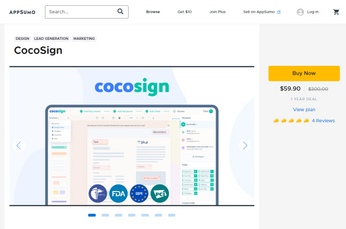
Transform Your Marketing Results with Effective Time Tracking
Time is one of your most valuable assets in the fast-paced marketing world. Every minute you spend on a task should contribute to your goals, but how do you ensure your time is effectively used? The answer lies in time tracking, a practice that helps you manage your day-to-day activities and significantly enhances your marketing results. Let's explore how time tracking can make a real difference in your marketing efforts.
Understanding the Importance of Time Tracking
Before diving into the specifics, it's crucial to understand why time tracking is crucial for marketers. Marketing involves multiple tasks, from creating content and managing social media to analysing data and client meetings.
With so many processes running in the background, Mac users may want to get more space using CleanMyMac to ensure their system remains responsive while juggling multiple tasks. Mac users working across multiple tools might also benefit from using a VPN for Mac to securely access online resources during remote collaboration or client meetings. Without tracking time, getting lost in the hustle is easy, often leading to missed deadlines and incomplete tasks. Time tracking helps you:
- Identify Time Wasters: Knowing where your time goes is the first step in eliminating unproductive activities.
- Prioritise Tasks: By understanding which tasks take the most time, you can prioritise your workload more effectively. Some companies integrate a Jira checklist for this purpose, helping teams structure and track tasks efficiently.
- Improve Productivity: Tracking time encourages you to work more efficiently, knowing every minute counts.
- Make Data-Driven Decisions: Time tracking software provides insights into how long tasks take, helping you make more accurate predictions and decisions.
- Boost Accountability: Time tracking fosters a sense of responsibility among team members. When everyone knows their time is being monitored through software for employee monitoring, there’s a greater incentive to stay on task and deliver results.
- Enhance Client Communication: Detailed time logs can be shared with clients to show how their budget is spent, fostering trust and transparency.
Tools for Effective Time Tracking
To get started with time tracking, you need the right tools. There are various time tracking software available, but picking one that fits your requirements is essential. Here are some popular options:
TimingApp: A powerful time tracking tool specifically designed for Mac users. It automatically tracks how you spend your time on your computer and provides insights to help you stay productive. With its seamless integration with Mac calendar apps, TimingApp allows you to easily plan and manage your daily tasks and projects.
- TimingApp: A powerful time tracking tool specifically designed for Mac users, and also among one of the best Mac calendar apps. It automatically tracks how you spend your time on your computer and provides insights to help you stay productive.
- Toggl: A user-friendly time tracking tool that tracks time across multiple projects. It offers detailed reports that help you understand how your time is spent.
- Clockify: A free time tracking tool with a simple interface. It’s great for teams and offers features like project tracking and time estimates.
- Harvest: Known for its integration with project management tools, Harvest allows you to track time, manage expenses, and invoice clients.
- RescueTime: This tool automatically tracks the time you spend on various apps and websites, giving you an accurate picture of your daily habits.
- TimeCamp: A time tracking tool that offers automatic time tracking, invoicing, and project management features. It integrates with many popular project management tools, making it easy to streamline your workflow.
- Apploye: A time tracking and employee monitoring software. It’s perfect for businesses of all sizes, offering features like GPS location tracking, timesheets, and productivity analysis. Apploye is designed to improve team efficiency and overall project management.
Setting Up an Effective Time Tracking System
Once you’ve chosen your tool, setting up a time tracking system is the next step. Here’s how you can do it effectively:
- Define Your Tasks: Start by listing all the tasks you perform regularly. These include writing blog posts, managing social media, attending meetings, analysing data, and more. Divide huge tasks into smaller, more manageable ones to track them more accurately. You may also want to explore outsourcing growth agencies, enabling you to focus on your core business while experts optimize your online presence. As a business owner, you may wonder whether outsourcing to digital marketing companies near me is the right choice to help manage and streamline these tasks more efficiently.
- Set Time Estimates: For each task, set a time estimate based on your past experiences. If your task is to monitor backlinks to assess the success of your SEO strategies and ensure your marketing efforts are driving the desired results, then set certain a time for it. This helps you create a realistic schedule and measures your efficiency.
- Track Your Time: Begin tracking time for each task as you work on it. Be diligent and avoid distractions. If you get interrupted, pause the timer and resume when you return to the task. Staying focused and managing your time effectively is essential, especially when aiming for fast SEO results UAE businesses strive for.
- Integrate Digital Tools: Time tracking is more effective when integrated with other tools. For example, combining time tracking with a digital signature tool can streamline approval processes, saving time that would otherwise be spent on back-and-forth communications.
- Review Your Data: Review the time tracking data at the end of the day or week. Look for patterns – are there tasks that consistently take longer than expected? Are there activities that eat up more time than they should? Use this data to adjust your workflow and improve your time management.
- Adjust and Improve: Time tracking is a continuous process. Review and adjust your time estimates and priorities based on your collected data. Over time, this will lead to more accurate scheduling and better use of your time.
Benefits of Time Tracking in Marketing
Time tracking offers several benefits that can directly impact your marketing results:
- Enhanced Focus: Knowing that your time is being tracked encourages you to focus on the task, resulting in better work and faster task completion.
- Better Planning: Time tracking data can help you plan your days more effectively. You’ll know exactly how much time to allocate for each task, reducing the risk of underestimating or overestimating time requirements. Incorporating strategic planning software can further enhance this process by providing insights into resource allocation and project timelines. Professionals pursuing PMP certification often gain deeper insights into how tools like time tracking contribute to effective project planning and execution.
- Increased Accountability: Time tracking promotes accountability for teams. When everyone tracks their time, it’s easier to see who is contributing what and where improvements can be made.
- Better Project Management: Time tracking helps allocate resources more effectively, ensuring that projects stay on schedule and within budget. This is particularly useful when designing a new campaign or document tracking for the signing process, where timely completion is crucial.
- Improved Client Communication: Showing clients how much time was spent on their projects builds trust and justifies your pricing. Moreover, it helps set realistic expectations and deadlines. Free Online QR code Generator, can also be used to provide clients with direct access to project updates or relevant materials.
- Higher Productivity: By eliminating time-wasting activities and focusing on high-impact tasks, time tracking naturally leads to increased productivity. This means you can achieve more in less time, giving you a competitive edge.
Conclusion
Time tracking goes beyond just a productivity tool; it’s a game changer for marketers looking to optimise their results. Understanding where your time goes, prioritising tasks effectively, and making data-driven decisions can significantly enhance your marketing outcomes.
Whether you’re a solo marketer or part of a large team, integrating time tracking into your routine can lead to better planning, improved focus, and, ultimately, more successful marketing campaigns. Start small with a simple tool and gradually build a time tracking habit that works for you. The transformation in your marketing results will speak for itself.





